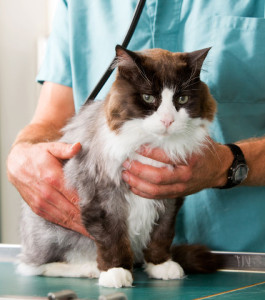Why See a Veterinary Specialist?
 How is a board-certified veterinary specialist different from my family veterinarian?
How is a board-certified veterinary specialist different from my family veterinarian?
In addition to completing undergraduate training and four years of veterinary school, board-certified veterinary specialists are similar to their human medical counterparts in that they have completed an internship and residency in their specialized field (an additional 3-5 years training). In addition to this extensive training, a board-certified veterinary specialist must pass rigorous examinations to achieve board certification. Specialists bring a greater understanding in areas such as internal medicine, cardiology, oncology, neurology, surgery, radiology, behavior, ophthalmology (eye diseases), dentistry and many more areas. Specialists have a greater knowledge of the unusual, the uncommon, or rare in both large and small animals. In addition, a specialist may have diagnostic equipment not generally used by your family veterinarian.
When should you request a referral to a board-certified veterinary specialist?
- Your animal’s disease is uncommon, complicated, or undiagnosed after standard testing.
- You would like an informed, neutral second opinion of your animal’s condition.
- The outcomes of the current treatments are not going well or as expected.
- Your animal requires a sophisticated procedure that is offered by a specialty hospital.
- Your animal can benefit from 24-hour monitoring provided by a referral hospital.
If you believe your animal would benefit from a visit to a board-certified veterinary specialist, we encourage you to work with your family veterinarian to complete a referral.
(Sources: American College of Veterinary Internal Medicine, American Veterinary Medical Association, and American College of Veterinary Surgeons.)



